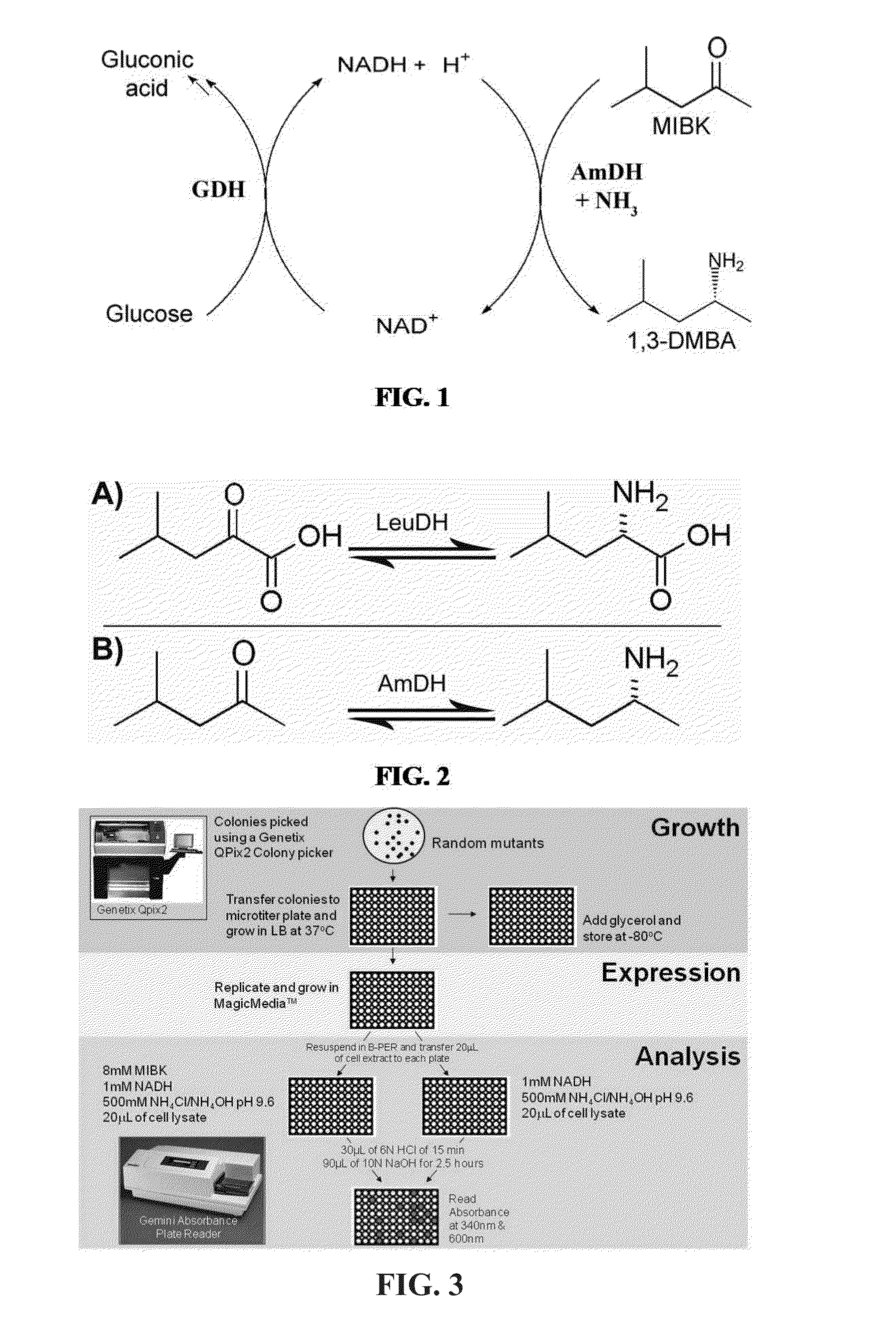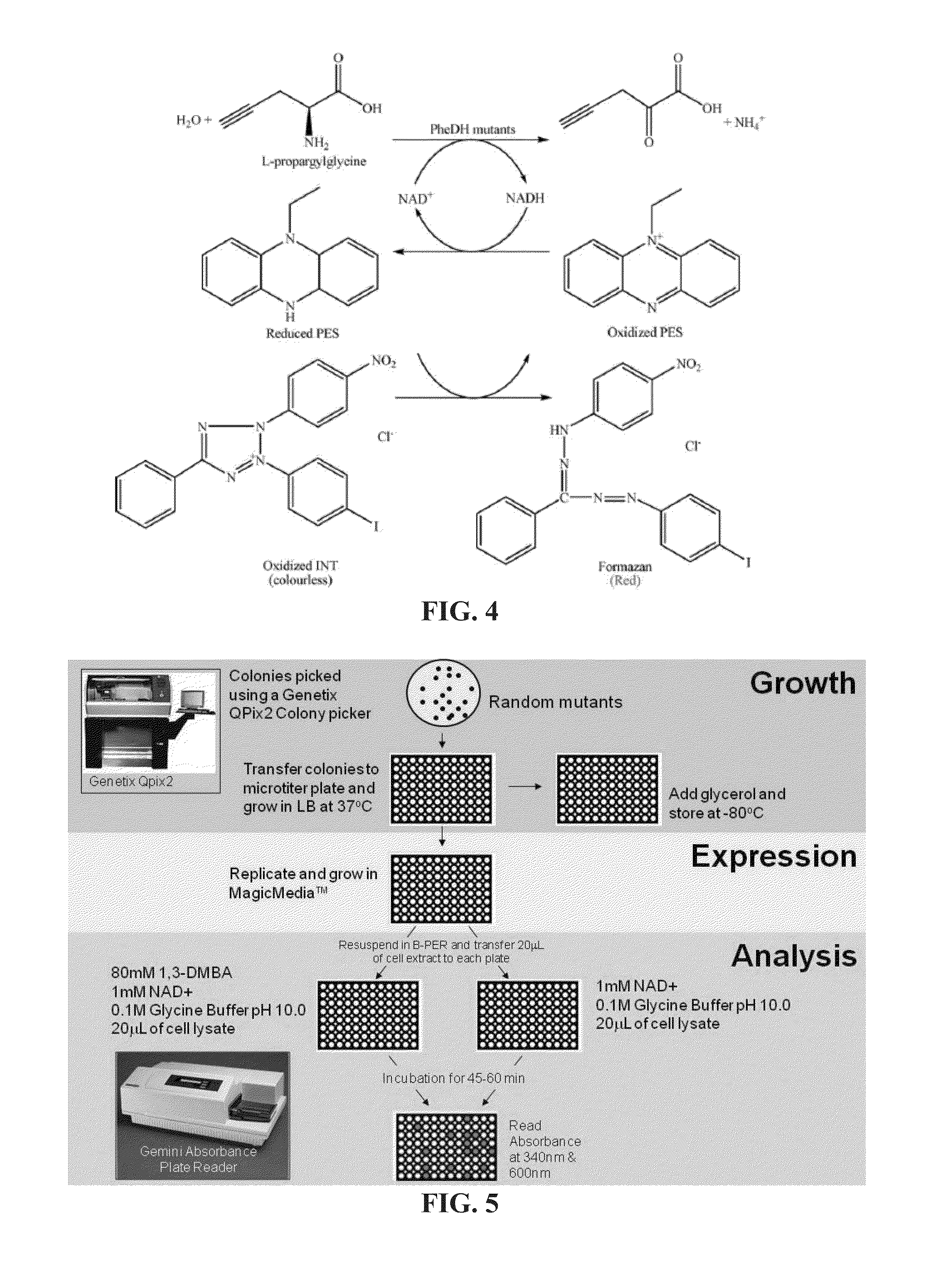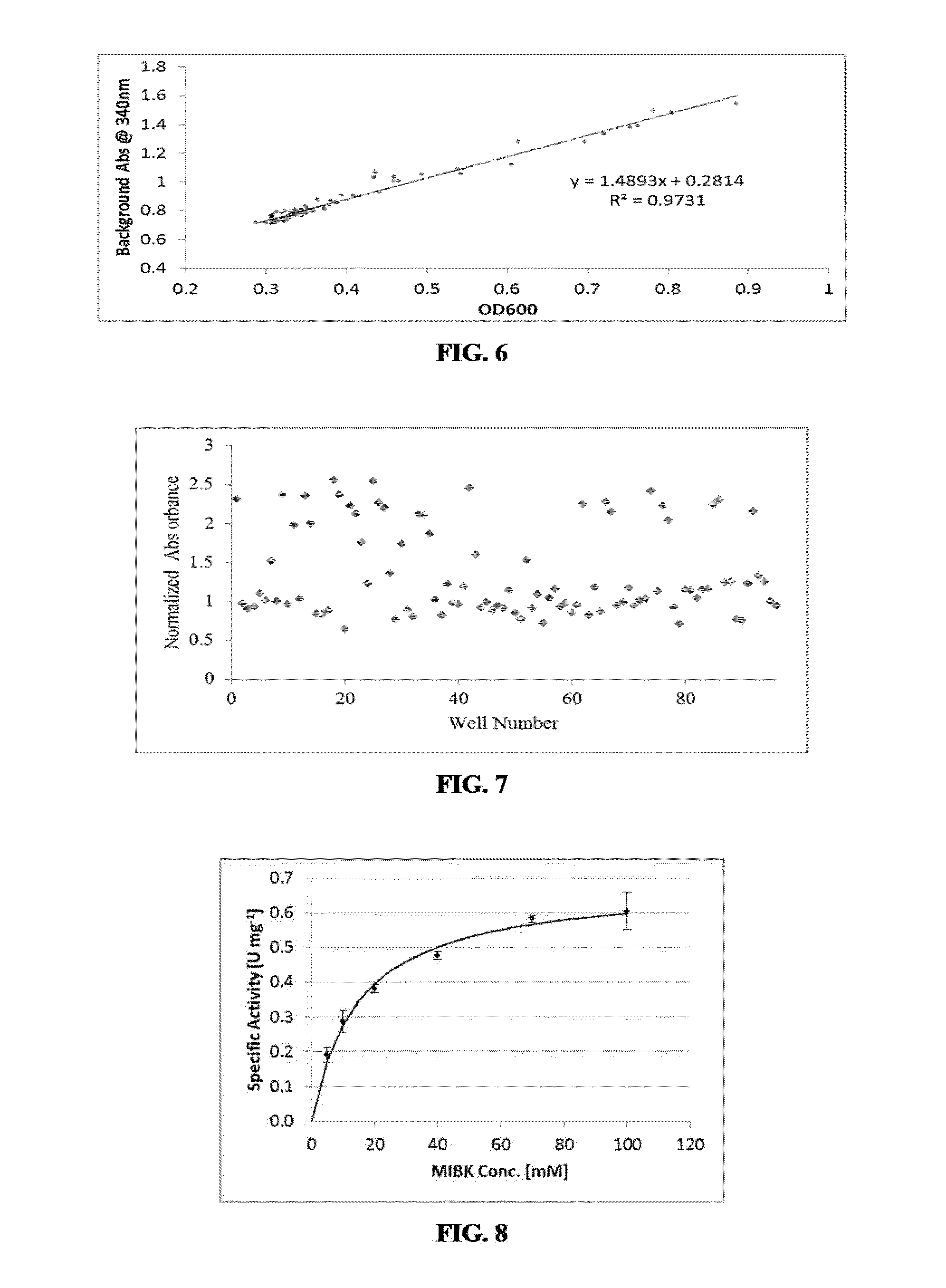Engineered amine dehydrogenases and methods of use thereof
a technology of amine dehydrogenase and amine dehydrogenase, which is applied in the field of composition and method of making chiral amines, can solve the problems of limited compound pool, unfavorable equilibrium constant of kinetic resolution, and limited number of biocatalysis reactions
- Summary
- Abstract
- Description
- Claims
- Application Information
AI Technical Summary
Benefits of technology
Problems solved by technology
Method used
Image
Examples
example 1
Preparation of Leucine dehydrogenase Variants with Amine Dehydrogenase Activity
Materials and Methods
[0270]gDNA Preparation, Gene Isolation and Overexpression
[0271]Leucine dehydrogenase (E.C. 1.4.1.9) from Bacillus stearothermophilus was donated by Assistant Professor Bert C. Lampson from East Tennessee State University, followed by isolation of the genomic DNA through application of method B described by Mehling et al. (Mehling, et al., FEMS Microbiology Letters, 128, (2): 119-125 (1995)). The isolated gene (1104 bp) was inserted into pET17b vector (Life Technologies-Invitrogen, Grand Island, N.Y., USA) at the restriction sites NdeI and HindIII (New England Biolabs) using T4 DNA Ligase (Roche, South San Francisco, Calif., USA) at 16° C., 8 hours. This allowed for overexpression upon transformation into E. coli BL21 DE3 competent cells (Life Technologies). Cultures were expressed at 37° C. in LB media for 24 hours. Cultures were induced with IPTG at and OD600 between 0.4 and 0.6 abso...
example 2
Variant K67S / E113V / N261L / V290C is an Amine Dehydrogenase
Materials and Methods
[0291]Three different assays were used over the course of evaluating the mutant libraries. Each subsequent assay method improved the quality of screening over previous methods.
[0292]NAD+ Auto-Fluorescence Assay
[0293]Libraries 2-5 were screened using an NAD+ auto-fluorescence assay (84-86). In an optimal system, sensitivities as low as 0.01 μM NAD(P)+ fluorophore were observed (Seidemann, New York, N.Y. Academic Press (1973)). Expression plates containing cell culture pellets were resuspended in 50 μL of B-Per Cell Lysing agent (Thermo Scientific). The resulting cell lysate was split into 20 μL aliquots in two separate plates, one reaction plate and one background plate. For the background plate, 180 μL of 1.1 mM NADH in 500 mM NH4Cl / NH4OH buffer pH 9.6 was added to each well. This plate lacks the ketone substrate and will only result in background conversion rates. Similarly, 180 μL of the same buffer was a...
example 3
Preparation of Phenylalanine Dehydrogenase Variants with Amine Dehydrogenase Activity
Materials and Methods
[0335]gDNA Preparation, Gene Isolation and Overexpression
[0336]Genomic DNA from Bacillus badius Bachelor (ATCC#14574) was purchased from the American Type Culture Collection (ATCC, Manassas, Va.). The PheDH gene could not be successfully amplified out of the fully intact genome. The genome had to instead be digested prior to amplification using restriction sites; BamHI, BglII, EcoRI, and NdeI. These restriction sites are known not to cut within the PheDH gene, but would cut at several instances within the organism's genomic DNA. This allowed for a more manageable DNA template to amplify the PheDH gene. The gene was amplified using a standard PCR protocol with the forward primer, 5′-GGAATTCCATATGAGCTTAGTAGAAAAAACATCCATCA-3′ (SEQ ID NO:49) and reverse primer, 5′-CCGCTCGAGTATTAGTTGCGAATATCCCATTTTG-3′ (SEQ ID NO:50). These primers simultaneously inserted the restriction sites NdeI a...
PUM
| Property | Measurement | Unit |
|---|---|---|
| enantiomeric excess | aaaaa | aaaaa |
| pH | aaaaa | aaaaa |
| concentrations | aaaaa | aaaaa |
Abstract
Description
Claims
Application Information
 Login to View More
Login to View More - R&D
- Intellectual Property
- Life Sciences
- Materials
- Tech Scout
- Unparalleled Data Quality
- Higher Quality Content
- 60% Fewer Hallucinations
Browse by: Latest US Patents, China's latest patents, Technical Efficacy Thesaurus, Application Domain, Technology Topic, Popular Technical Reports.
© 2025 PatSnap. All rights reserved.Legal|Privacy policy|Modern Slavery Act Transparency Statement|Sitemap|About US| Contact US: help@patsnap.com



